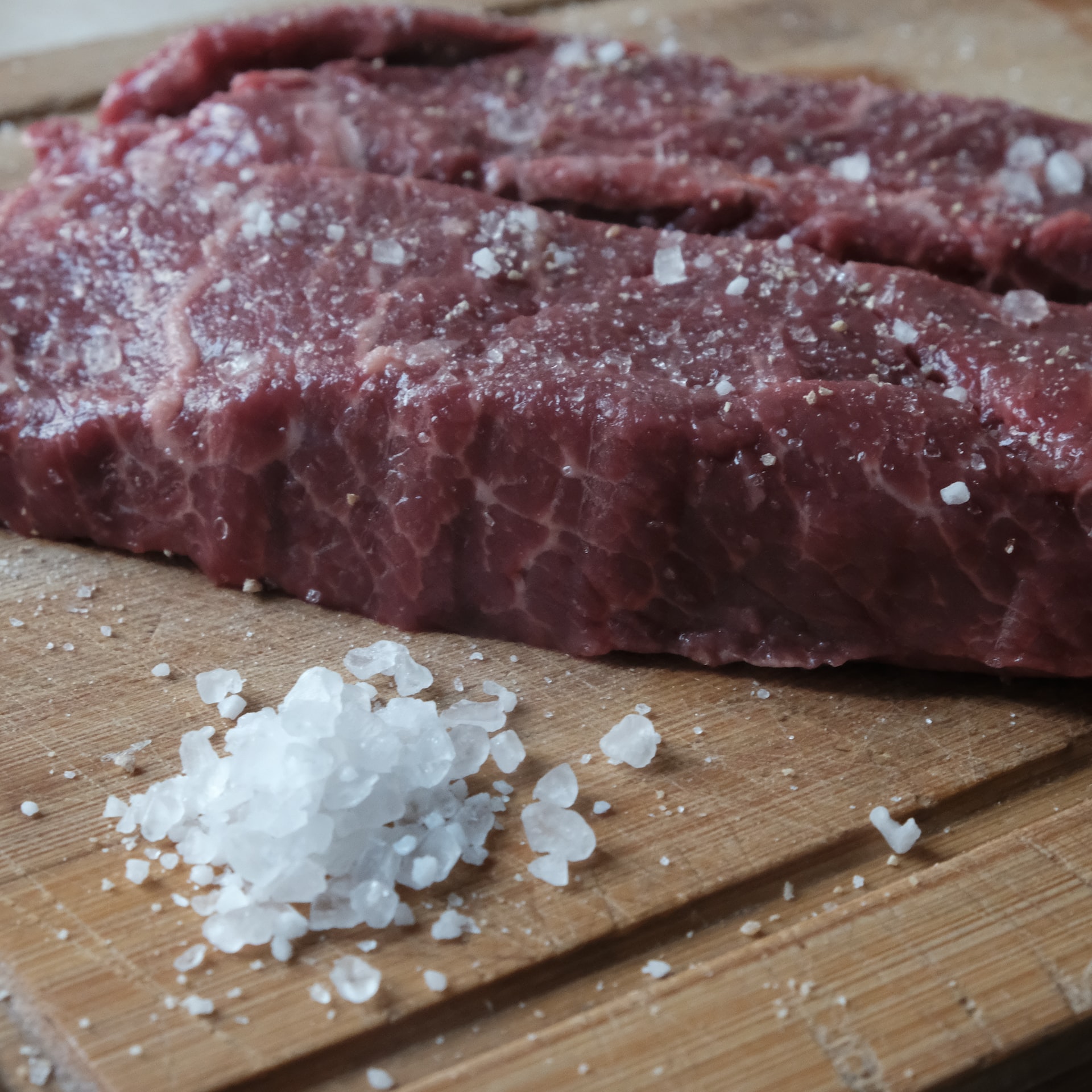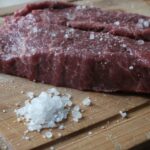
Dear fellow keto dieters,
We have some great news: our salt is keto-approved! You can now enjoy all your favorite salty foods without worry.
We know that many of you have been avoiding salt out of fear that it would kick you out of ketosis, but we’re here to tell you that you can now rest easy. Our salt is specially formulated to be compatible with the keto diet, so you can enjoy all the flavor without any of the guilt.
So go ahead and sprinkle away – your ketosis is safe with us!
Keto dieters rejoice: our salt is keto-approved
The keto diet is a low-carb, high-fat diet. Unlike other low-carb diets, though, the keto diet specifically focuses on getting your body into a state of ketosis. In ketosis, your body burns stored fat for energy instead of glucose (sugar).
Is salt keto
Yes, salt is technically keto-approved. However, you should be careful about the type of salt you consume and how much salt you consume. Some types of salt (like Himalayan pink salt) are healthier than others (like table salt). And eating too much salt can actually lead to weight gain and other health problems.
What is the keto diet?
The keto diet is a high-fat, low-carbohydrate diet that has become increasingly popular in recent years. Unlike most other diets, the keto diet specifically targets the body’s ability to burn fat for energy, rather than carbohydrates. This process, known as ketosis, is thought to be the key to the diet’s success.
In order to achieve ketosis, followers of the diet must consume a very high proportion of fat (70-80%), moderate protein (15-20%), and very low carbohydrates (<5%). This drastic shift in macronutrient intake can be difficult for some people to maintain long-term, which is why many people choose to follow a more flexible version of the diet (sometimes called the “modified keto diet”).
One of the common concerns about the keto diet is its high salt content. However, there is no need to worry – our salt is perfectly safe for keto dieters! Our salt is mined from underground salt deposits and is completely free of impurities. It is also rich in valuable minerals such as potassium and magnesium, which can help support a healthy electrolyte balance in your body.
What are the benefits of the keto diet?
The keto diet is a high-fat, low-carbohydrate diet that has been gaining popularity in recent years. Proponents of the diet claim that it can help people lose weight and improve their health.
There are several benefits of the keto diet:
1. Weight loss: The keto diet can help you lose weight quickly and efficiently. By cutting out carbohydrates, your body is forced to burn fat for energy, resulting in weight loss.
2. Increased energy: Many people who follow the keto diet report increased energy levels. This is likely due to the fact that your body is burning fat for energy, rather than carbohydrates.
3. improved cholesterol levels: The keto diet can help improve your cholesterol levels by reducing bad cholesterol and increasing good cholesterol.
4. reduced risk of heart disease: The keto diet can reduce your risk of heart disease by reducing bad cholesterol and increasing good cholesterol.
5. improved mental clarity: Many people who follow the keto diet report improved mental clarity and focus. This is likely due to the increased intake of healthy fats and decreased intake of carbohydrates.
What are the best foods to eat on the keto diet?
If you’re following the keto diet, you’re probably well aware of the food restrictions. The high-fat, low-carb diet requires a careful balance of macronutrients, and while that can be tough to maintain, it’s definitely doable with a little meal planning.
One common question is whether salt is off-limits on the keto diet. After all, salt is a type of carbohydrate, and carbs are severely restricted on this way of eating. However, salt is an essential nutrient that your body needs in order to function properly, so it’s important to include it in your diet in moderation.
The good news is that there are plenty of keto-approved foods that are high in salt content. Here are some of the best options to help you hit your daily sodium goals:
-Beef jerky: This popular snack is a great way to get a little extra protein and salt in your diet. Just be sure to choose a variety without any added sugars or other carb-containing ingredients.
-Pickles: These salty treats are perfect for satisfying your hunger between meals. Plus, they’re super low in carbs—a half-cup serving has just 1 gram of net carbs.
-Sardines: Sardines are a great source of both protein and healthy omega-3 fatty acids. They’re also packed with sodium—a 3-ounce serving has over 1000 mg of sodium!
-Canned tuna: Canned tuna is another great option for getting some additional protein into your diet. Just be sure to choose a variety packaged in water rather than oil to keep the fat content down.
– pretzels: Pretzels make a great snack when you’re craving something salty and crunchy. Just be sure to choose a brand that doesn’t have any added sugars or other unhealthy ingredients
What are the worst foods to eat on the keto diet?
When you’re on the keto diet, you’re eating a lot of fat and very few carbs. That means you need to be extra careful about the kinds of fat you’re eating, because not all fats are created equal. Trans fats and saturated fats are the worst kinds of fat for your heart health, and you should avoid them as much as possible.
How do I know if I’m in ketosis?
There are a few ways to measure ketosis, but the most accurate way is to measure your blood ketone levels using a specialized meter. You can also measure your urinary ketone levels, but this is not as accurate and can be misleading.
If you’re following the keto diet, you’re probably aiming for a state of ketosis in which your body is burning fat for energy instead of carbohydrates. But how do you know if you’ve reached that state?
The most accurate way to measure ketosis is to test your blood ketone levels using a specialized meter. This method involves pricking your finger and placing a drop of blood on a test strip, which you then insert into the meter. The meter will give you a reading of your blood ketone level.
You can also measure your urinary ketone levels, but this method is not as accurate and can be misleading. Urinary ketone levels only reflect the amount of keton bodies that are being excreted through your urine, not necessarily the amount that are present in your body.
What are the side effects of the keto diet?
The keto diet has been shown to have a number of benefits, including weight loss, improved mental clarity and decreased inflammation. However, there are also some potential side effects that you should be aware of before starting this diet.
One of the most common side effects is the “keto flu.” This is a temporary condition that can occur when your body is adjusting to the new diet. Symptoms may include headache, fatigue, nausea and difficulty concentrating.
How do I start the keto diet?
The keto diet is a high-fat, low-carbohydrate diet that can help you lose weight and improve your overall health. To start the keto diet, you’ll need to follow a few simple steps:
1. eliminated processed foods and sugars from your diet
2. eat plenty of healthy fats, including avocados, olive oil, and grass-fed butter
3. increase your intake of low-carbohydrate vegetables, such as broccoli and kale
4. focus on protein-rich foods, such as eggs, chicken, and fish
5. drink plenty of water and avoid sugary drinks
6. exercise regularly
What are some keto-friendly recipes?
With the keto diet becoming more popular, there are a number of recipes that have been developed specifically for this high-fat, low-carb lifestyle. Here are a few of our favorites:
-Keto Chicken Parmesan
-Keto Salmon with Avocado Salsa
-Keto Zucchini Noodles with Pesto
-Keto Cheeseburger Salad
Where can I find more information about the keto diet?
If you’re interested in learning more about the keto diet, there are a few resources that can help. The web is full of articles, recipes, and personal experiences from people who have adopted this way of eating.
There are also a number of books available on the subject. Two of the most popular are “The Keto Diet” by Leanne Vogel and “The Complete Ketogenic Diet for Beginners” by Amy Ramos.
If you’re looking for support from others who are following a keto diet, there are several online communities where you can connect with others. These forums can be a great resource for sharing information and recipes, as well as getting motivation and moral support from people who understand what you’re going through.



